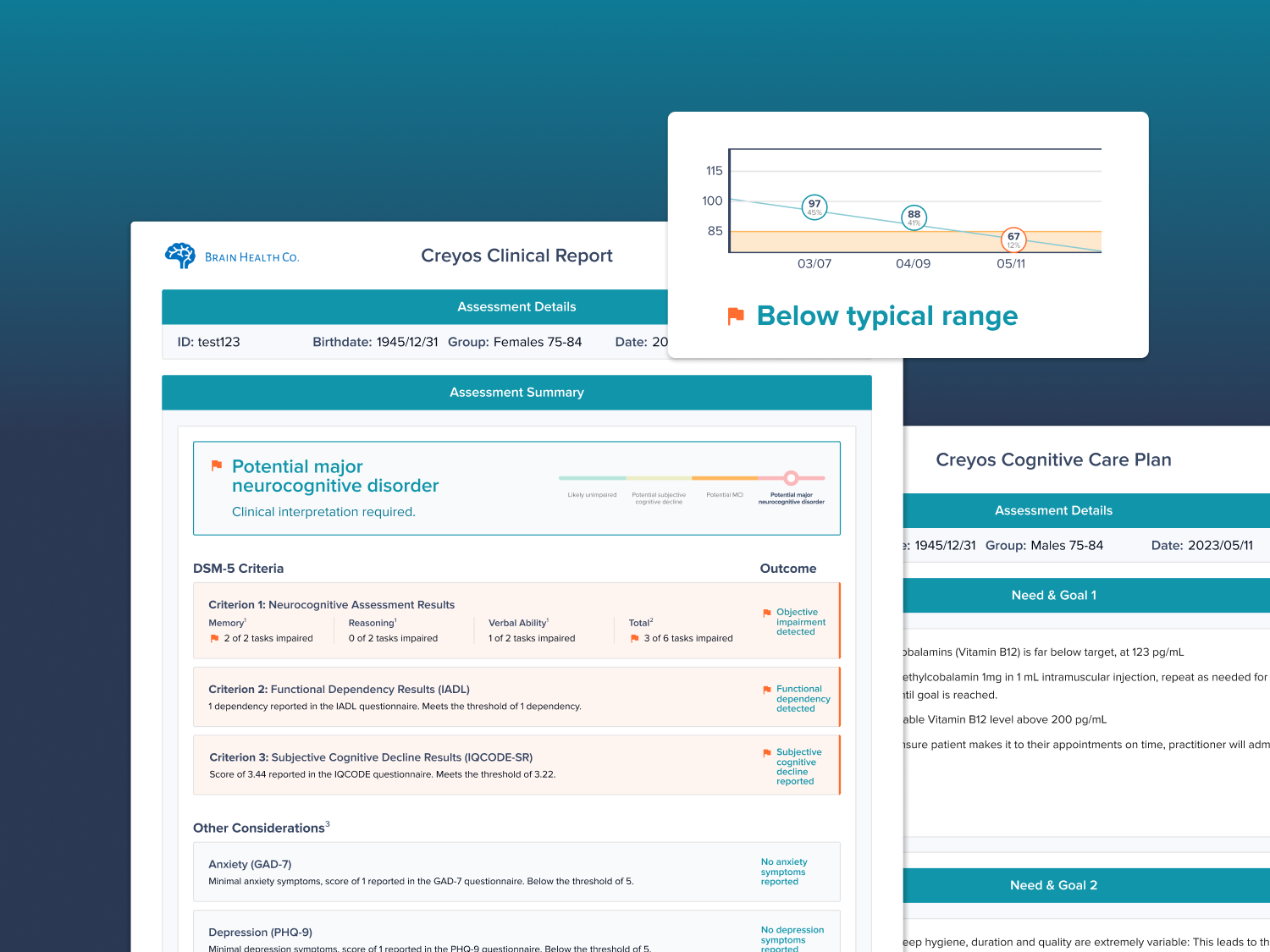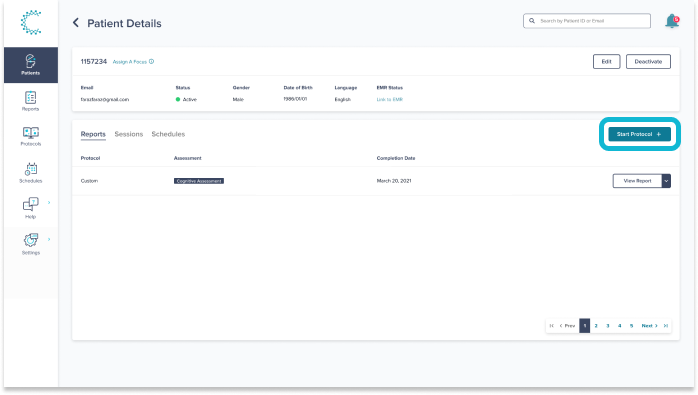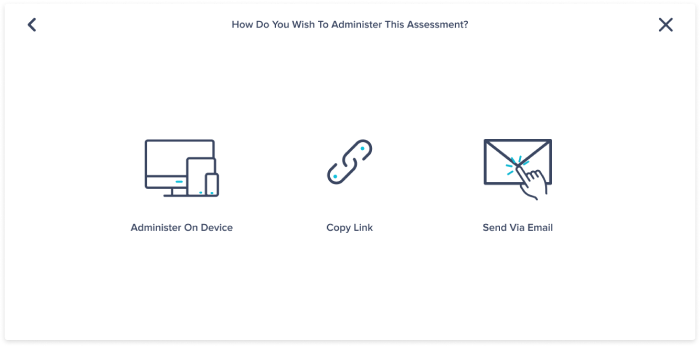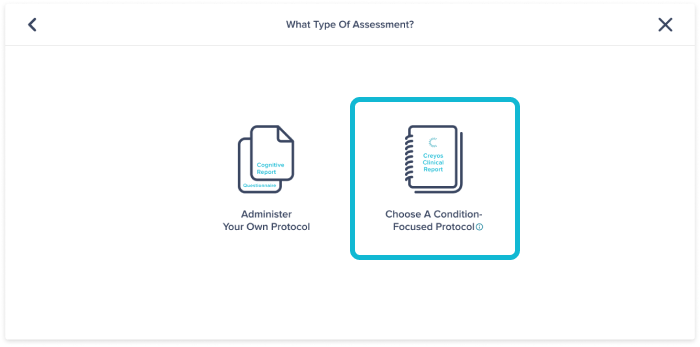
The Creyos Dementia Assessment and Care Plan
Published: 28/11/2025 | 6 min read
Written by: Sonia Urlando, Senior Content Marketing Manager
Reviewed by: Mike Battista, Director of Science & Research
Accurate dementia detection is more important than ever. Over 7 million Americans are living with Alzheimer’s disease, and that number is expected to grow to 13 million by 2050 in line with an aging population. Still, a significant gap remains in the detection of mild cognitive impairment and dementia.
One survey found that only 47% of primary care providers regularly test patients 65 years and older for cognitive impairment. And up to 96% of providers would welcome more information about cognitive assessments, including what cognitive assessment tools to use in their practice, suggesting they may be unaware of what is available.
Healthcare providers may cite limited time to see patients, administrative burden, or a lack of specialized training as barriers to regularly assessing patients’ cognition. All of these factors can then contribute to the underdiagnosis of mild cognitive impairment and dementia.
To properly address this growing need for assessment while reducing the administrative burden, providers are turning to technology—investing in computerized cognitive testing tools aligned with the Alzheimer’s Association’s recommendations to help them more effectively screen patients for cognitive decline.
Effective computerized cognitive testing tools need to balance scientific validity and efficiency. They should be easy for patients to complete through easy administration, and they need to give providers the precise and detailed insights needed to make informed decisions regarding patients’ cognitive healthcare.
The Creyos Dementia Assessment paves the way for earlier detection of mild cognitive impairment and dementia. Paired with an embedded care planning tool, healthcare providers gain a comprehensive suite of tools to expand their assessment capabilities, intervene earlier, and better manage their patients’ care needs.
What’s included in the Creyos Dementia Assessment and Care Plan?
The Creyos Dementia Assessment and Care Plan gives healthcare providers a comprehensive solution for providing high-quality cognitive care.
This comprehensive protocol gives clinicians:
- A quick cognitive screener to identify impairment and determine if further testing is needed.
- A full assessment battery to help establish diagnostic criteria for mild or major neurocognitive disorders, allowing providers to make more confident and precise diagnoses.
- A prepackaged cognitive care planning tool that gives providers next steps and care teams structured plans to better manage their patients’ safety and quality of life.
Together, these resources enable healthcare providers to effectively detect, monitor, and manage cognitive impairment.
Screener for Initial Detection
Creyos’s scientifically validated two-task cognitive screener takes less than 5 minutes to complete and identifies signs of cognitive impairment (commonly an early sign of dementia) quickly to determine whether further testing is needed.
Assessment Battery for Cognitive and Functional Assessment
If impairment is detected, patients progress to complete further assessment in Creyos. The full assessment protocol includes additional tasks that measure more areas of cognition and rating scales to assess subjective impairment, functional dependence, and neuropsychiatric symptoms.
The testing approach aligns with DSM-5 criteria and automatically tabulates results, reducing the time it takes to gather patient information and helping to confirm and document criteria for MCI and dementia.
Comprehensive Care Planning
For patients with identified cognitive impairment, providers can use Creyos to quickly generate detailed, personalized, Medicare-aligned care plans, including lifestyle advice, medication management, and caregiver guidance. These actionable plans give patients and care teams clear next steps while helping reduce caregiver strain.
Tracking and Longitudinal Testing
Creyos assessments are built to reassess patients, so you can track changes in a patient’s cognitive health over time. The scientifically validated tests present randomized problem sets every time to reliably relate patient performance to previous results and normative data. This makes it easy to see at a glance whether cognition is stable or declining and helps guide meaningful conversations with patients and their caregivers about how the condition is progressing.
58% of Neurologists Use A Low-Sensitivity Screener to Detect Dementia
What are the standard assessments neurologists are using today—and are there better tools? Download our ebook Advancing Dementia Diagnosis to learn more.
How to Administer the Creyos Dementia Assessment
1. Click "Start Protocol."
Within the Creyos platform, navigate to the Patient Details page. Once there, start a protocol.

2. Choose Your Administration Method
Like with all Creyos assessments, the test can be administered remotely or in person. Choose how you would like to administer the assessment and send a link or an email to your patient to complete the assessment either in the clinic or at home.

3. Choose Custom or Condition-Focused Protocols
A new screen will appear with the option to choose between two types of protocols.
- Selecting "Administer Your Own Protocol" will take you down the familiar path of either choosing an existing protocol you have created or creating a custom protocol on the fly.
- Selecting "Choose A Condition-Focused Protocol" will allow you to administer the pre-built dementia protocol.

4. Dementia Protocol
On the next page, select “MCI Assessment” from the available condition-focused protocols.
If you’d like to administer a custom assessment instead, you can also navigate back to a custom protocol flow by clicking "Would you rather administer your own protocol?" You can then assemble your own set of tasks and questionnaires.
The Science Behind the Cognitive Screen and Care Plan
Informed by Rigorous Scientific Research
The science behind Creyos comes from over 30 years of research and a normative database consisting of over 85,000 participants.
Addressing the need for physicians to have a fast yet comprehensive way to detect age-related impairment, Creyos created a screening algorithm based on scores from two online cognitive tasks from its established library, resulting in efficient, sensitive, and specific detection of potential age-related cognitive impairment.
Early detection of cognitive impairment and dementia is critical for improving patients’ quality of life. Yet capture rates for these conditions can be low, and traditional tools like the Mini-Cog, MoCA, and SLUMS may have limitations for detecting early stages of the condition.
For more information on the science behind the Creyos Dementia Assessment, read the Dementia Protocol Science Overview.
Benefits of Creyos for Dementia Assessment
The Creyos approach to dementia screening, assessment, and care planning is designed to help physicians close the gap in dementia detection and cognitive care planning.
Creyos Dementia Screening in Primary Care
Primary care providers are expected to deliver complete patient care—and that includes monitoring and maintaining brain health. In fact, under Medicare, an annual wellness visit requires a cognitive assessment. However, many physicians are limited by time, lack of specialized training, or administrative burden.
The benefits of Creyos for primary care providers include:
- Enhanced value of service. With no specialized training required, primary care providers can expand their capabilities and regularly test patients’ cognition.
- Improved capture rates. Respond effectively to patients’ memory concerns using assessments that are sensitive to detecting impairment with rigorous scientific backing.
- Early dementia detection. Earlier detection means healthcare providers can initiate appropriate interventions sooner for better patient care and informed treatment.
- Better operational efficiency is achieved when cognitive screens and testing protocols can be administered during a pre-visit or annual wellness visit. These can be administered in person, or a patient can complete them at home without physician oversight. Seamless communications, automated reporting, and EHR integration are built right into the Creyos platform for optimized workflows.
Creyos Dementia Screening for Neurologists
As specialists in brain health, neurologists often see patients with known cognitive impairment when their condition has progressed to a point that it impacts daily life. Other screening tools may only scratch the surface when it comes to symptom detection and don’t provide the detailed, objective data that is valuable for developing effective care plans.
The benefits of Creyos for neurologists include:
- Cognitive domain-specific reports. In-depth reports highlight specific cognitive functions that are impaired in an easy-to-interpret manner.
- Assessment of comorbid conditions. Behavioral questionnaires are included to offer insights into a wide range of symptoms beyond cognitive impairment (e.g., depression), providing a more complete sense of the patient’s well-being.
- Automated scoring. The patient’s cognitive performance is benchmarked in the context of their age group against the Creyos normative database of over 85,000 participants.
- Patients are retained in their care. With Creyos, neurologists can often manage all parts of cognitive assessment and care planning. They may also be able to address behavioral symptoms—all in one platform—making it easier to keep patients in their care.
Ready to Close the Gap in Cognitive Care?
The Creyos Dementia Assessment and Care Plan was developed with healthcare providers' needs in mind. With increased importance being placed on dementia detection and a growing population impacted by this disease, this protocol equips physicians with the tools needed to successfully detect and manage cognitive decline.
The end-to-end screening, assessment, and care planning capabilities come standard as part of every Creyos online subscription.
 Reviewed by Mike Battista, Director of Science & Research at Creyos
Reviewed by Mike Battista, Director of Science & Research at Creyos
Mike Battista specializes in brain health, cognition, and neuropsychological testing. He received his PhD in personality and measurement psychology at Western University in 2010 and has been doing fun and useful stuff in the intersection between science and technology ever since.




